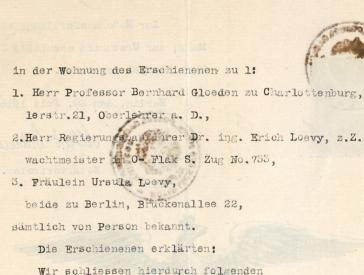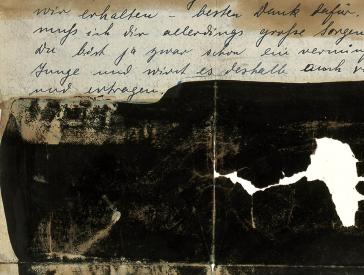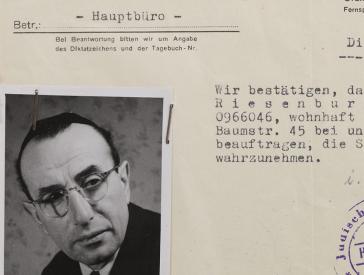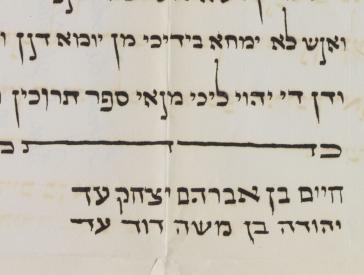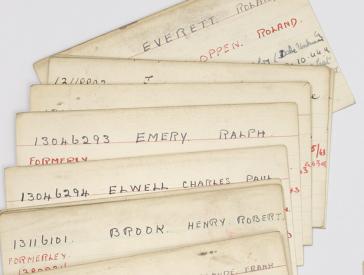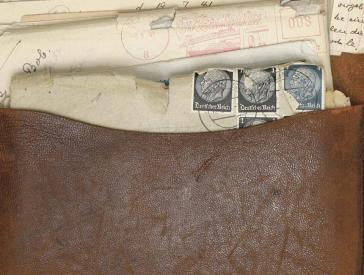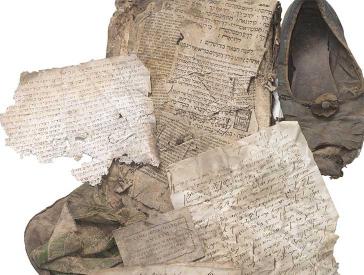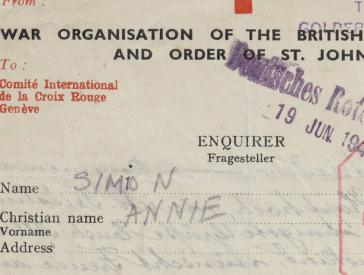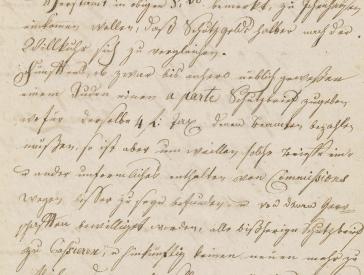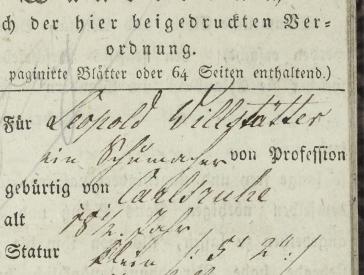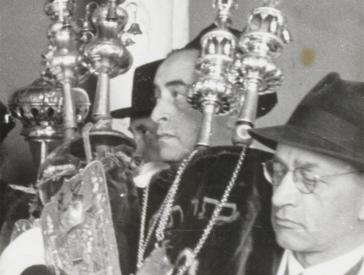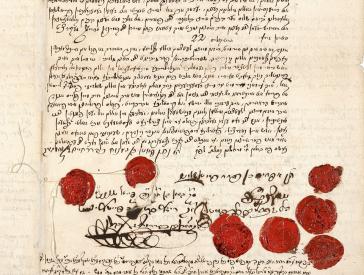Martin Riesenburger: Prison Chaplain during the Cold War
From Our Holdings
This document certified in February 1953 that Martin Riesenburger (1896–1965) was employed as a rabbi and responsible for pastoral care in prisons. It is labeled as a “service card” and written on Jewish Community of Berlin letterhead. The card appears makeshift: it was not preprinted, is not on reinforced paper or card, and the passport photo is only stapled to the page. And what does “pastoral care in prisons” mean?
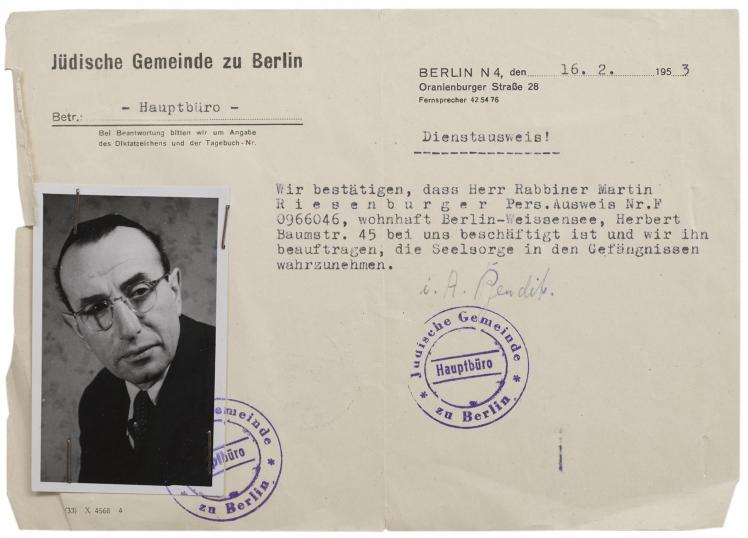
Martin Riesenburger’s service card; Jewish Museum Berlin, Gift of Peter Schulz, photo: Jens Ziehe
Berlin During the East–West Conflict
The Jewish Community of Berlin was split over the intensification of the East–West conflict in early 1953. The Jews of East Germany suffered reprisals. They were accused of disloyalty to the GDR. Several hundred Jews escaped from East Berlin. The East Berlin community came under surveillance and individual community members were arrested. It is possible that Rabbi Riesenburger was responsible for these prisoners and was granted permission to visit them in prison.
Rabbi in East Berlin
Riesenburger had survived the period of the Nazi rule thanks to his wife. Lucie Klara Riesenburger had converted to Judaism in the 1920s and was therefore considered a non-Jew according the Nazi racial laws. Following liberation, he led the first Jewish prayer service in Berlin in May 1945. In 1961, the East German government appointed Martin Riesenburger as the chief rabbi of the Jewish communities in the GDR. Martin Riesenburger died four years later in Berlin.
| Title | Martin Riesenburger's Jewish Community of Berlin service card |
|---|---|
| Collection | Archive |
| Location and year of origin | Berlin, 16 February 1953 |
| Medium | Paper, ink, photograph, staples |
| Dimensions | 14,9 x 21 cm |
| Acquisition | Gift of Peter Schulz |
Selected Objects: Archive (10)


